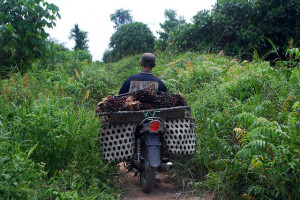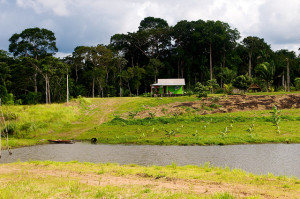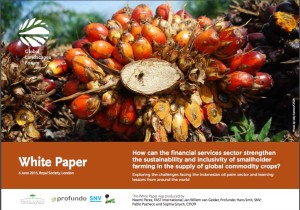By Pablo Pacheco

The ongoing search for sustainable agricultural supply brings the role of finance into the center of the debate. The key question is how can smallholder farmers gain access to sources of financing that supports the transition to more sustainable production systems. Pablo Pacheco, Coordinator of Flagship 5 of the CGIAR Research Program on Forests, Trees and Agroforestry will discuss this issue at the Global Landscapes Forum: The Investment Case in London on 6 June 2016. Ahead of the event, he shared his reflections on the burning question of linking smallholders to finance. He argues that sustainability in the commodity trade can only be achieved, if smallholders are part of the picture.
Several approaches have been tried to connect farmers to financial services such as rural micro-credit under relatively flexible conditions or formal credit through small-scale lending operations. Many success stories have been observed in a pilot scale as documented by institutions dealing with rural finance. Yet many constraints still prevent smallholders from accessing affordable and flexible sources of credit, the main ones being
- financial inflexibility and limited potential to access inexpensive credit,
- inability to meet requests from banks,
- lack of tenure security which is still requested as collateral.

We live in times in which sustainability of agricultural supply is the order of the day. Both large-scale farmers and smallholders are under pressure to embrace environmental standards as part of their production systems. This may have benefits on improved yields that could ultimately translate into higher income and profits. But the danger is that these benefits will only materialize for some companies and smallholders who are not short on capital. Affordable credit is needed for expanding the supply base of smallholders while helping them to embrace more sustainable production systems.
Less-endowed farmers continue to struggle to adopt improved practices, either due to the low quality of planting material, or lack of access to fertilizers and poor knowledge of management techniques. Particularly, this is the case for smallholder growers in the palm oil sector who still face low yields. Part of these barriers could be overcome with improved access to financial resources in flexible conditions. But not in all cases there is a shortage of credit, since flexible sources of capital also originate from informal sources, but those sources often comes at higher costs, and do not help with intensification of production.
There are two challenges: how can we promote the transition to more sustainable production systems and who will pay for the associated costs? Often commercial banks are only interested in financing the most profitable land-use activities under relatively rigid conditions, and mills only make money available to those smallholders under contract schemes. They did not care too much about sustainability in the past, but that is changing due to the increasing demands from manufacturing companies and retailers.

The transition to a more sustainable production is more difficult for independent smallholders. It will need concerted efforts from all stakeholders, including traders, industry, service providers, state agencies, and intermediaries to help smallholders overcome these difficulties. The financial service providers have a key role to play. They are starting to adopt environmental, social and governance criteria for screening their investments, and to more actively support inclusive business models. Yet, it will still take a long time for these efforts to materialize in effective outcomes on the ground.
In spite of that, new financing approaches are emerging which could be signs of hope for smallholders engaged in global commodity markets. They are related to efforts to link formal and informal finance providers, by leveraging local value chain actors for smallholder finance, and making use of technologies that can expand access to money while at the same time reducing its associated costs.
The emerging lessons in the palm oil sector will surely be taken up in future debates on how to reduce the sustainability gap that exists for smallholders and how to overcome their exclusion.
So this is a good time for Flagship 5 on Global Governance, Trade and Investment to expand its research agenda to include financing for farmers. We want to understand a few things:
- what are the incentives and constraints that shape the implementation of responsible financing practices?
- which factors restrict smallholders’ access to financial products and services? And
- under what conditions can access to financing services be enhanced to support inclusive and sustainable development objectives?
At the Global Landscapes Forum: The Investment Case we will bring together representatives from finance, science, government and the corporate sector to discuss how to best support sustainability among smallholders.











